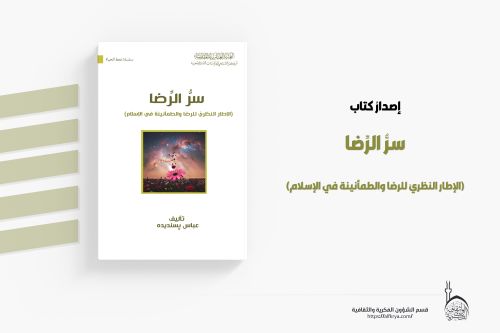

Grammar


Tenses


Present

Present Simple

Present Continuous

Present Perfect

Present Perfect Continuous


Past

Past Continuous

Past Perfect

Past Perfect Continuous

Past Simple


Future

Future Simple

Future Continuous

Future Perfect

Future Perfect Continuous

Passive and Active


Parts Of Speech


Nouns

Countable and uncountable nouns

Verbal nouns

Singular and Plural nouns

Proper nouns

Nouns gender

Nouns definition

Concrete nouns

Abstract nouns

Common nouns

Collective nouns

Definition Of Nouns


Verbs

Stative and dynamic verbs

Finite and nonfinite verbs

To be verbs

Transitive and intransitive verbs

Auxiliary verbs

Modal verbs

Regular and irregular verbs

Action verbs


Adverbs

Relative adverbs

Interrogative adverbs

Adverbs of time

Adverbs of place

Adverbs of reason

Adverbs of quantity

Adverbs of manner

Adverbs of frequency

Adverbs of affirmation


Adjectives

Quantitative adjective

Proper adjective

Possessive adjective

Numeral adjective

Interrogative adjective

Distributive adjective

Descriptive adjective

Demonstrative adjective


Pronouns

Subject pronoun

Relative pronoun

Reflexive pronoun

Reciprocal pronoun

Possessive pronoun

Personal pronoun

Interrogative pronoun

Indefinite pronoun

Emphatic pronoun

Distributive pronoun

Demonstrative pronoun


Pre Position


Preposition by function

Time preposition

Reason preposition

Possession preposition

Place preposition

Phrases preposition

Origin preposition

Measure preposition

Direction preposition

Contrast preposition

Agent preposition


Preposition by construction

Simple preposition

Phrase preposition

Double preposition

Compound preposition


Conjunctions

Subordinating conjunction

Correlative conjunction

Coordinating conjunction

Conjunctive adverbs


Interjections

Express calling interjection


Grammar Rules

Preference

Requests and offers

wishes

Be used to

Some and any

Could have done

Describing people

Giving advices

Possession

Comparative and superlative

Giving Reason

Making Suggestions

Apologizing

Forming questions

Since and for

Directions

Obligation

Adverbials

invitation

Articles

Imaginary condition

Zero conditional

First conditional

Second conditional

Third conditional

Reported speech


Linguistics

Phonetics

Phonology


Semantics


Pragmatics

Linguistics fields

Syntax

Morphology

Semantics

pragmatics

History

Writing

Grammar

Phonetics and Phonology

Semiotics


Reading Comprehension

Elementary

Intermediate

Advanced


Teaching Methods

Teaching Strategies
Language attitudes today
المؤلف:
Josef schmied
المصدر:
A Handbook Of Varieties Of English Phonology
الجزء والصفحة:
923-52
2024-05-18
1024
Language attitudes today
Attitudes towards languages in Africa can be heard in many debates, but systematic studies are rare and difficult. At least three types of attitudes have to be distinguished as far as English in East Africa are concerned.
The stereotyped notions on English are usually extremely positive. It is seen as “sophisticated” and “superior” (but also as “difficult” and “formal”). Such notions may however have little effect on attitudes towards practical language use and usage in East Africa. Usually East Africans do not really subscribe to language-inherent properties (like English is “cool and impersonal”, “colonial” or “European”), although it may be considered more appropriate for formal and official use than other African languages.
Language is mainly viewed in extremely practical terms, since it is too obvious that English is the international language of science and technology and world-wide communication. Thus international arguments in favor of English are also uncontroversial. Even the great supporter and translator of Kiswahili, President Nyerere of Tanzania, emphasized the importance of English calling it “the Kiswahili of the world”. The real issue is the use (and usage) of English in intranational communication, especially in African schools. Although the first-language principle (based on UNESCO recommendations since the 1950s) is normally accepted by African educationalists, nationally minded Tanzanians support the use of Kiswahili from the first day at school, whereas internationally minded parents in Uganda advocate a “fast track” to English, which had been common at independence. The stage of switching to English is usually after lower primary (four school years) in Uganda and after secondary school in Tanzania, whereas in Kenya it is at the beginning of the four years of secondary school at the latest. The debate is most heated in Tanzania, where on the one hand in recent years many new private secondary schools have advertised English as a medium of instruction, while on the other hand even some universities have proposed teaching in Kiswahili. The same arguments pro and con have been used for decades (cf. Schmied 1991: chap. 7) and they can be detected again in most recent newspaper debates (e.g. in www.ippmedia.com).
In contrast to these debates on practical language issues, attitudes towards African varieties of English are rarely discussed outside scholarly circles. Accepting African forms is hardly openly admitted except in pronunciation, where “aping the British” is seen as highly unnatural. Grammar and syntax in particular are considered the glue that holds the diverging varieties of English together; and international intelligibility is deemed absolutely essential as the major asset of the international language cannot be jeopardized. Thus Standard English with African pronunciation may be accepted as an intranational norm, but Ugandan, Kenyan or Tanzanian English will not be tolerated at least in the near future. On the other hand the theoretical British norm is only upheld and rarely experienced in use in present-day Africa.















 قسم الشؤون الفكرية يصدر مجموعة قصصية بعنوان (قلوب بلا مأوى)
قسم الشؤون الفكرية يصدر مجموعة قصصية بعنوان (قلوب بلا مأوى) قسم الشؤون الفكرية يصدر مجموعة قصصية بعنوان (قلوب بلا مأوى)
قسم الشؤون الفكرية يصدر مجموعة قصصية بعنوان (قلوب بلا مأوى) قسم الشؤون الفكرية يصدر كتاب (سر الرضا) ضمن سلسلة (نمط الحياة)
قسم الشؤون الفكرية يصدر كتاب (سر الرضا) ضمن سلسلة (نمط الحياة)

















